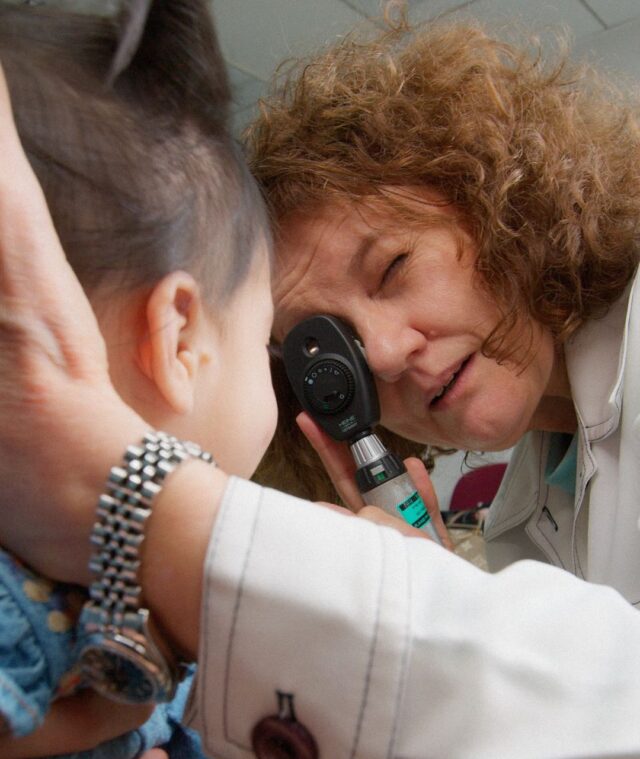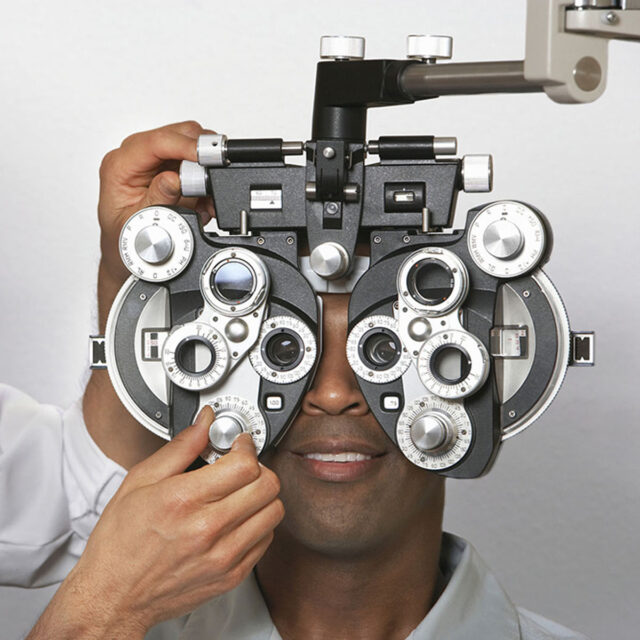Eye injuries can be painful and distressing. Accidents can cause varying degrees of vision loss and the effects are sometimes permanent, especially if the right help is not sought quickly enough. Even a small scratch or chemical splash can cause big problems.
Be prepared and know what to do in an emergency by reading the advice here. Here is a guide to three of the most common eye injuries and how to treat them, from a leading eye specialist in Dubai:
1. Corneal abrasions from small particles like dust and sand
Scratches on the cornea, the clear surface of your eye, can be caused by a variety of tiny foreign objects like dust or sand entering the eye. Corneal abrasions happen often in everyday situations like DIY projects, gardening, outdoor sports and activities, or children’s play.
A scratched cornea can be a very minor injury. Very tiny particles will often be removed naturally by blinking and crying tears. However, they may require treatment by an eye doctor.
Do
- Give your eyes a chance to remove the particles naturally with tears.
- If this doesn’t work, try using running water to flush the eye out.
- Visit your eye doctor if you cannot remove the particles.
- Seek treatment if discomfort continues after the eye is flushed out.
- Be aware of the risk of infection from a corneal abrasion and see your eye doctor if you have any concerns.
Do not
- Rub your eyes or apply pressure.
- Try to remove the particles with anything other than artificial tears or water as you may cause more serious damage or an infection.
- Patch the eye as the dark, damp conditions may encourage infection.
2. Eye traumas from larger foreign objects
If any kind of larger foreign object penetrates, punctures, cuts or scratches the eye, or hits it at high speed, this needs immediate attention from an eye doctor or emergency room. The kinds of objects that frequently cause eye trauma include balls, stones, fingers, fish hooks, wood or metal splinters from home renovation tasks, gardening or industrial activities, and bullets from toy guns.
Eye traumas are usually very painful and can also cause long-term problems, especially if help isn’t sought quickly. Even a tiny scratch from a baby’s fingernail or pet’s claw can be serious, especially if the area becomes infected. Retinal detachment, the loosening of the retina at the back of your eye, can be caused by eye traumas and can result in permanent loss of vision. A bleed might result from a torn blood vessel in the eye, which will cause blurred vision, and the eye pressure might rise as a consequence, causing short or long term Glaucoma damage. These are just a few reasons why you must seek professional help immediately.
Do
- Get emergency advice and treatment as soon as possible.
- Apply a clean, cold compress to the eye if you wish, but don’t apply pressure.
- Take symptoms like flashers, floaters, shadows or blurred vision seriously; these could be a sign of retinal detachment.
- Attend follow-up appointments and follow your doctor’s advice for recovery.
Do not
- Try to remove the object yourself if it is still lodged; this could cause further damage.
- Rub your eye or apply pressure.
3. Chemical eye injuries
Getting any liquid other than water in your eye can be frightening and uncomfortable or painful. Toiletries like shampoos and soaps are unlikely to cause serious problems. However, there are many household chemicals, like cleaning agents and laundry detergents, that do cause significant damage to the eye area.
Chemical eye injuries might be caused by splashes or sprays into your eye, or they might happen when you transfer a chemical from your hands into your eye.
The type of damage caused by chemicals will depend on how strong the solution is and whether they are acid or alkaline. Acids can cause redness and burning but can often be treated more easily, and the damage tends to be mostly superficial. Alkalines may cause very serious damage, as it usually penetrates quickly into the eyeball with devastating changes to every layer of the eyeball’s tissue.
Do
- Check the packaging for the chemical if you can and look for advice on what to do if the product gets in your eye.
- If in doubt, seek professional medical advice as quickly as possible.
- Wash your eye IMMEDIATELY under steadily running water for at least 15 minutes.
- Seek help if your eye is very red or your vision is blurred after washing the area out.
- Tell your doctor exactly what chemical is in your eye if you need to get emergency treatment.
Do not
- Touch or rub your eyes.
Prevention is better than cure
The eye is a delicate, vulnerable area. Serious damage is likely to cause distress, pain, and possibly long-term loss of vision. This is why you should always take steps to avoid the three types of injury above.
Here’s what you can do to keep your eyes safe:
- Wear appropriate protective eyewear when in any situation that is likely to involve flying dirt, dust or sand to prevent corneal abrasions.
- Take care when handling chemicals for household cleaning, DIY and gardening. Consider wearing protective eyewear.
- Follow the advice of coaches and sports regulatory authorities on the right kind of eyewear to prevent sports eye injuries for the sports you play.
Get in touch with our team at Gulf Family Clinic today for an eye checkup and to learn more about eye injury prevention and treatment.








